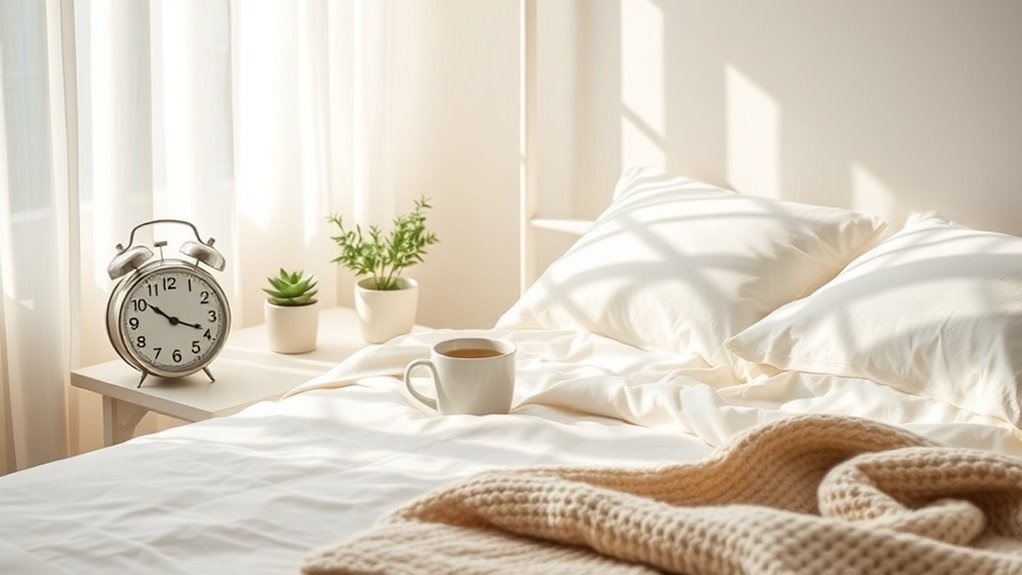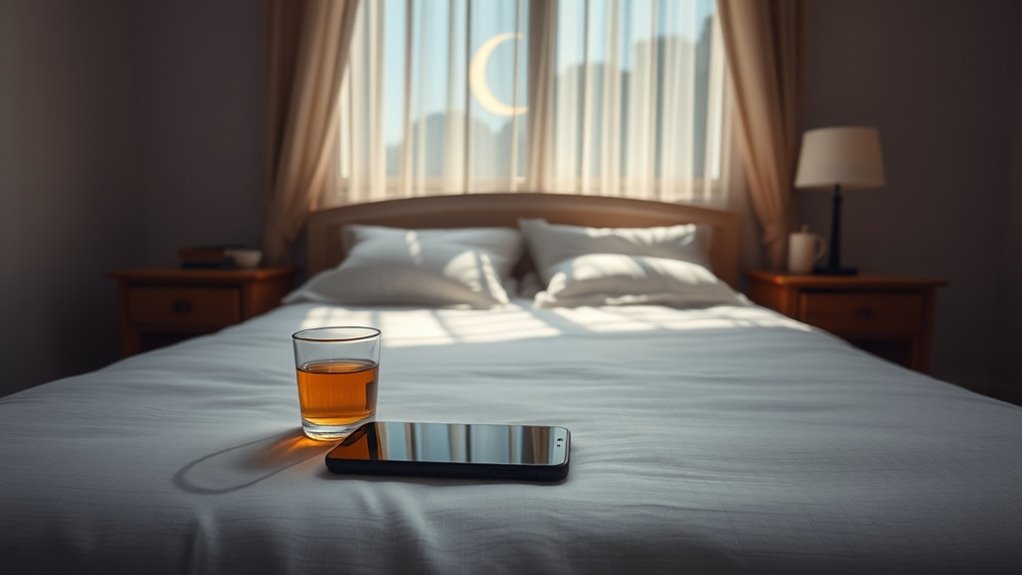This Simple Sleep Routine Helped Me Wake Up Refreshed
Understanding the Importance of Sleep
Understanding the importance of sleep is crucial for your overall well-being, especially since it directly affects your physical health, mental clarity, and emotional stability.
A consistent sleep routine enhances sleep quality, regulating your body’s internal clock and promoting restorative rest. Research shows that adequate sleep improves cognitive function, mood, and immune response, ultimately leading to a healthier, more productive life. Furthermore, prioritizing sleep is essential for mental well-being, contributing to reduced stress levels and improved emotional health.
Creating a Relaxing Sleep Environment
A peaceful and inviting sleep environment plays a vital role in enhancing the quality of your rest.
To optimize your space, focus on reducing noise and light, maintaining a cool temperature, and choosing comfortable bedding.
Research shows that a dark, quiet room promotes melatonin production, while a comfortable mattress can decrease sleep interruptions. Additionally, incorporating simple bedtime rituals can further prepare your body for a restorative night of sleep.
These adjustments can lead to deeper, more restorative sleep.
Establishing a Consistent Sleep Schedule
When you stick to a consistent sleep schedule, your body learns to regulate its internal clock, which can significantly improve your overall sleep quality. Research shows that maintaining regular sleep times enhances the production of melatonin, the sleep hormone. Aim for the same bedtime and wake-up time daily, even on weekends, to reinforce this rhythm and promote better restorative sleep. Additionally, establishing a regular sleep routine can reduce sleep disorders and help you achieve deeper, more restorative sleep.
Limiting Screen Time Before Bed
To promote better sleep quality, it’s crucial to limit screen time before bed, as exposure to blue light from devices can interfere with melatonin production.
By reducing screen usage, you can improve your ability to fall asleep and enhance overall restfulness. In fact, implementing simple tips like these can lead to significant improvements in your sleep health.
Consider these strategies:
- Set a device curfew an hour before bedtime.
- Use blue light filters on screens.
- Engage in screen-free activities, like reading.
Incorporating Relaxation Techniques
Reducing screen time before bed sets the stage for incorporating relaxation techniques, which can further enhance your sleep experience. You might try deep breathing exercises, progressive muscle relaxation, or meditation to calm your mind. Research indicates that these practices lower anxiety and improve sleep quality. Additionally, incorporating breathing techniques into your routine can significantly boost relaxation and help you drift into a more peaceful sleep.
Monitoring Sleep Quality and Adjusting as Needed
Since sleep quality can vary significantly, monitoring your nightly rest is crucial for making necessary adjustments to your routine.
Use tools like sleep trackers to identify patterns and trends. Consider:
- Tracking your sleep duration and efficiency
- Noting factors affecting your sleep, such as caffeine intake
- Adjusting your bedtime based on your daily energy levels
Regular assessment will empower you to optimize your sleep effectively.





